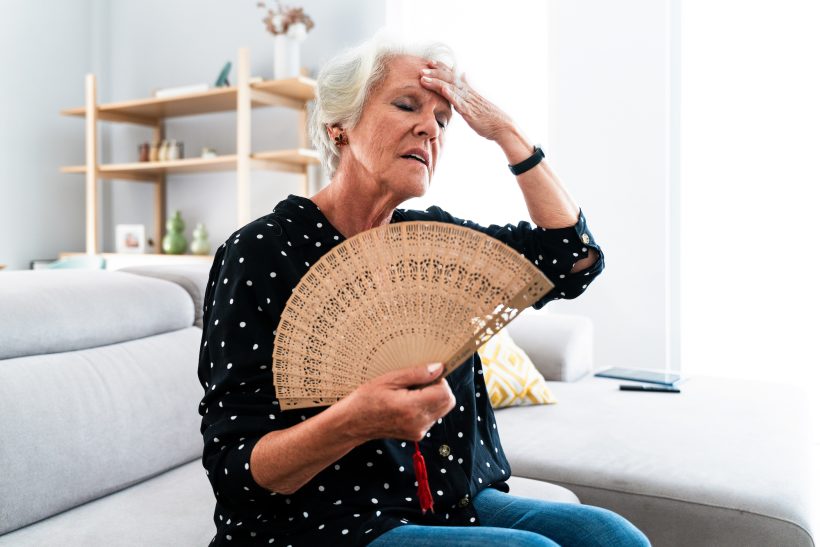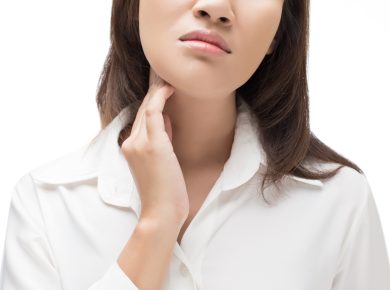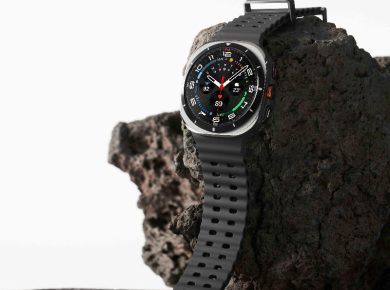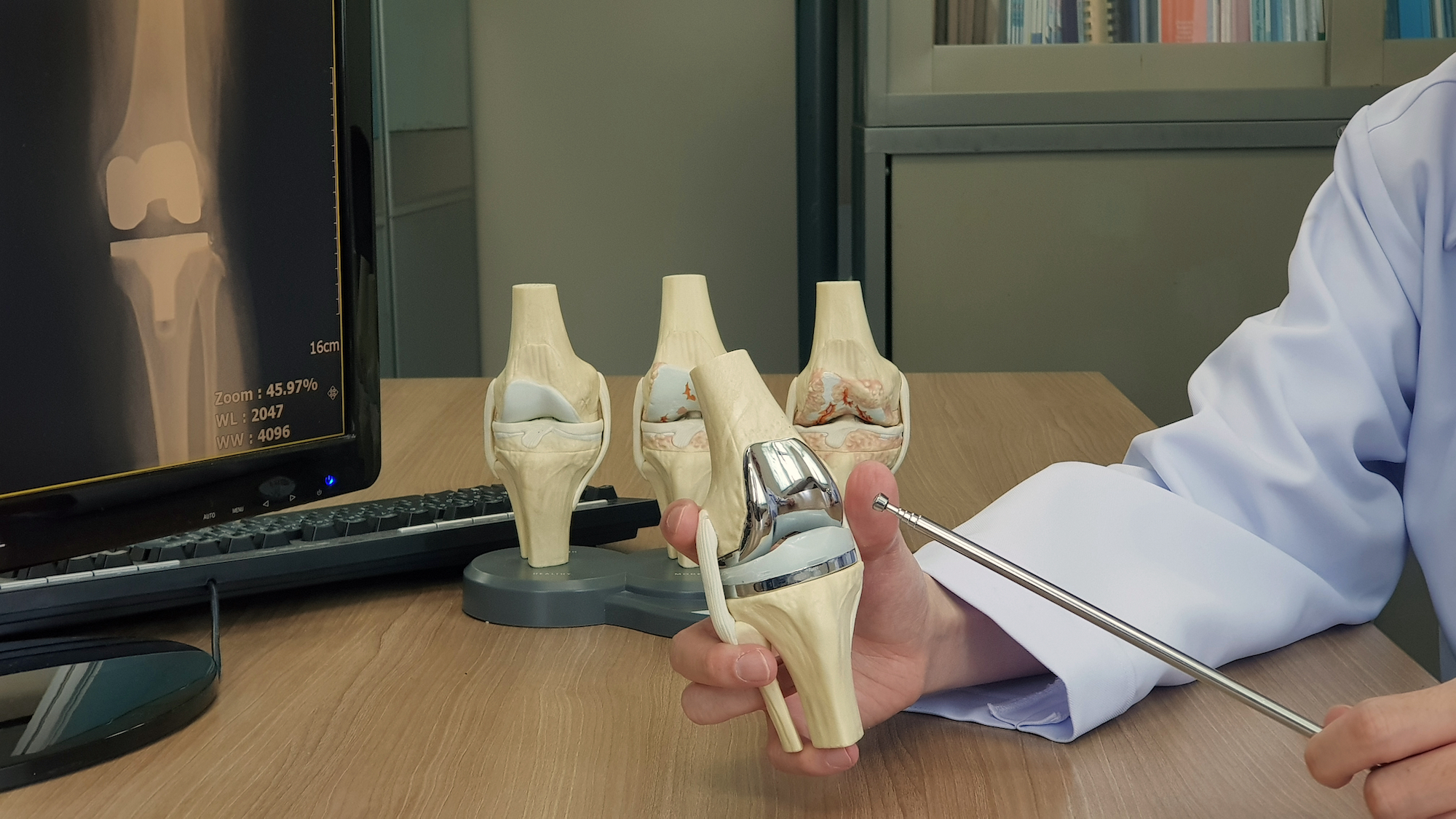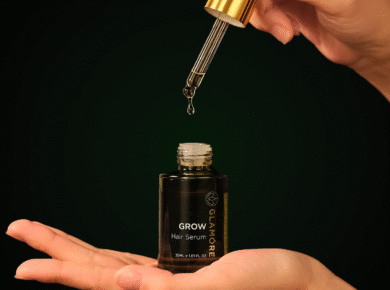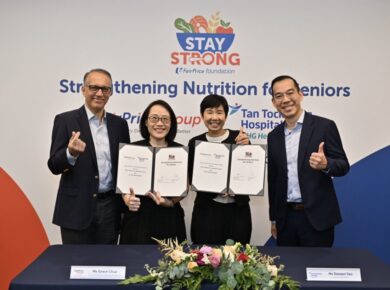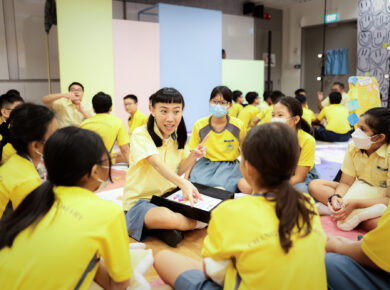Menopause is a natural stage of life, yet many women in Singapore still find themselves struggling in silence when it comes to its symptoms—particularly vasomotor symptoms (VMS) like hot flushes and night sweats. Too often brushed off as just part of ageing or mistaken for the effects of our tropical climate, these symptoms can take a real toll on both physical and emotional well-being. From disrupted sleep and fatigue to anxiety and strained relationships, VMS goes beyond momentary discomfort—it can significantly affect quality of life.
To shed light on this important issue, The Wellness Insider spoke with healthcare experts from Astellas Pharma who explained why menopause symptoms are often misunderstood, why women may not seek help, and what treatment options are now available. They also shared insights into a groundbreaking non-hormonal therapy that’s helping more women manage their symptoms safely and effectively.
Q: Why do you think vasomotor symptoms (VMS) such as hot flushes and night sweats are still so often misunderstood or dismissed, especially in a climate like Singapore’s?
Vasomotor symptoms (VMS) can be easily attributed to the weather rather than menopause in Singapore, as there is still a lack of awareness and education about menopause. Many women do note realise that VMS are biological responses to hormonal adjustments. In Singapore’s fast-paced healthcare system, unless blood tests show abnormalities, or a patient reports symptoms which are debilitating, women are more likely to be advised to simply “monitor” their symptoms.
Singaporean women are also often juggling demanding careers with homelike, and there is a cultural expectation placed upon them to “keep it together”. Therefore, it is not in their nature to complain or put themselves first. While hot flushes and night sweats can be embarrassing, inconvenient and disruptive, many women tend to dismiss or downplay their symptoms as simply a part of aging. There is a genuine belief that menopause symptoms, especially VMS, are simply a burden they must bear (as their mothers had before them). Not managing VMS can lead to a reduced quality of life, sleep disruption and burnout.
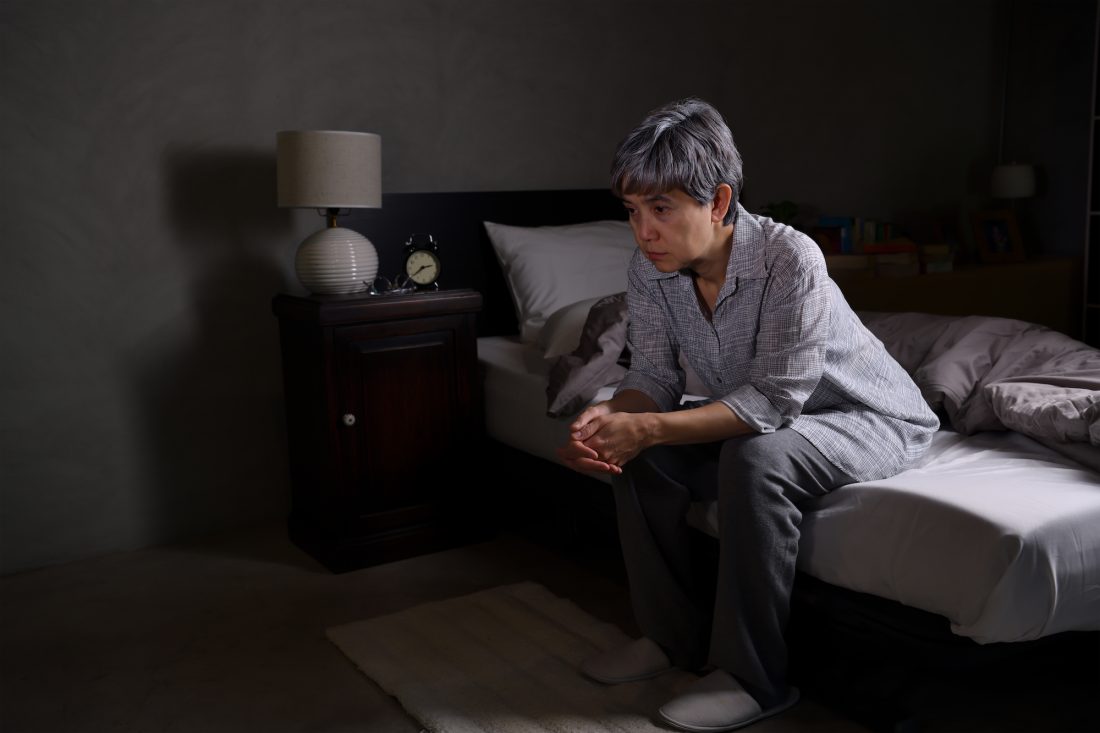
Q: Can you share more about how VMS impacts the quality of life for women going through menopause – both physically and emotionally?
Simply put, VMS impacts the quality of life for many women as they frequently don’t realise the associated symptoms that they are experiencing as a result. In many cases, women continue to experience VMS for months or even years as VMS is often overlooked or left unaddressed.
The Physical Impact:
- Thermoregulation breakdown
- Intense and unpredictable hot flushes
- Physical discomfort that can happen without warning, which often cause distress and/or embarrassment or both
- Flushed face and neck area
- May experience episodes of dizziness and heart palpitations even in air-conditioned rooms
- Sleep depravation
- Night sweats interrupt sleep as women frequently wake up cold and drenched, often requiring a change in clothes and/or even bedding
- Chronic poor sleep leading to fatigue, reduced cognitive performance and risk of depression, which can also trigger psycho-somatic episodes
The Emotional Impact:
- Embarrassment
- Emotional suppression may impact their work performance or personal relationships with others as they feel the need to hide their symptoms
- Anxiety and mood instability
- The unpredictability of VMS can result in women feeling on edge, waiting for signs of the next episode
- Hormonal changes may heighten emotional reactions, leading to mild and even severe mood swings that can affect relationships, caregiving responsibilities and self esteem
- These factors can lead to conflict, withdrawal and a general strain on relationships
- Withdrawal and isolation
- There might be a tendency to withdraw from intimacy due to embarrassment for fear of symptoms flaring up. This can reduce their social interactions or even result in them avoiding leadership opportunities at work
- Social support is most needed during this time, but this is when women are least likely to seek it out
Q: Why do many women in Singapore not seek treatment, and how can awareness and support improve?
Many women in Singapore do not actively seek treatment as they may be unaware how interconnected all the symptoms they are experiencing really are. When they do know, they may often choose to manage menopausal symptoms without medical intervention, such as going out less, wearing looser clothings or carrying a change of clothes with them. It is important to continue raising awareness that it is natural to go through menopause and seek help. Keeping women informed about what may happen during the perimenopausal and menopausal transitions is a good starting point to help them cope with menopause. In addition, there are treatments available, and it is important to seek professional advice from healthcare professionals who can assist to tailor treatments according to their respective symptoms, age and background.
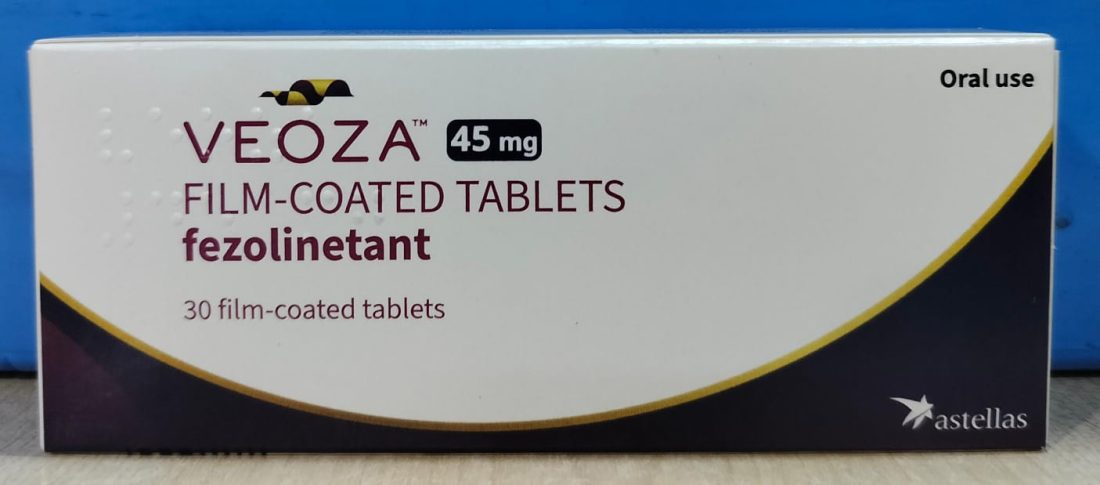
Q: How does VEOZA™ differ from traditional hormonal therapies?
VEOZA™ (fezolinetant) is a non-hormonal oral NK3 receptor antagonist – not an oestrogen or progestogen. In the SKYLIGHT 1 Phase 3 trial published in The Lancet, VEOZA™ 30mg and 45mg once daily, produced statistically significant reductions in VMS frequency and severity by week 4, maintained through 52 weeks. It delivers efficacy comparable to hormone therapy but without oestrogen exposure, making it suitable for women ineligible or uncomfortable with hormone therapy.

Q: Why does targeting neurokinin B matters and how does VEOZA™ work?
Declining estrogen causes overactivity of hypothalamic KNDy neurons (kisspeptin/ neurokinin B/ dynorphin), which narrows the thermoregulatory set point via NK3 receptor signalling, triggering VMS. VEOZA™ selectively antagonises NK3 receptors, blocking neurokinin B signalling and restoring thermoregulatory stability – thus addressing the root neurobiological mechanism rather than merely relieving symptoms.
Q: What are the common concerns about menopause treatments and how does VEOZA™ addresses them?
Women commonly worry about hormone therapy risks, treatment efficacy onset, side effects and long-term safety. VEOZA™ is a non-treatment that is suitable for those who may find hormone therapy challenging. Clinical trials show symptom relief begins as early as week 1-4, with sustained benefit to week 52. Most side effects (headache, insomnia, mild gastrointestinal effects) are mild; rare liver transaminase elevations (1-6%) have been reported and require periodic monitoring at 39 months.
Q: What is Astellas’ role in workplace menopause support?
By introducing the first-in-class non-hormonal NK3 antagonist for VMS, Astellas elevates menopause as a legitimate health concern, encouraging healthcare professionals and employers to incorporate symptom recognition and support into clinical practice and workplace wellness programmes as a standard. This framing helps reduce stigma and supports women during menopause transitions.
Q: What are some of the misconceptions about menopause and VMS?
| Misconception | Reality |
|---|---|
| Hot flushes are mild and short-lived | VMS may persist for many years at moderate-to-severe intensity, profoundly affecting sleep, mood, cognition and daily life |
| Hormone therapy is the only effective option | VEOZA™ provides an evidence-based, effective non-hormonal alternative for those who can’t or who are unwilling to use hormone therapy |
| Menopause-related symptoms don’t merit medical attention | VMS are physiological symptoms with medical and quality-of-life consequences; clinical guidelines support treatment when symptoms arise |
Q: How does Astellas address women’s health research gaps and why does it matter?
VEOZA™ addresses a longstanding therapeutic gap: a non-hormonal, targeted treatment for VMS, which is especially important and helpful for women with contraindications to hormone therapy. Extensive phase 3 (SKYLIGHT 1 & 2) and extension trials enrolled several thousand women and generated robust efficacy and safety data through 52 weeks.
Q: What advice do you have for women currently experiencing VMS and unsure about seeking treatment?
VMS are medically valid symptoms that commonly impair sleep, mood, work and relationships. Women should be encouraged and supported to talk candidly with their healthcare provider about all available options – including lifestyle measures and non-hormonal therapies such as VEOZA™, especially if hormone therapy is contraindicated or undesired.
Treatment efficacy is rapid and sustained, side effects are generally mild and liver monitoring is straightforward. Peer support, community groups and specialised menopause clinics can help reduce stigma and support informed, personalised decision-making.
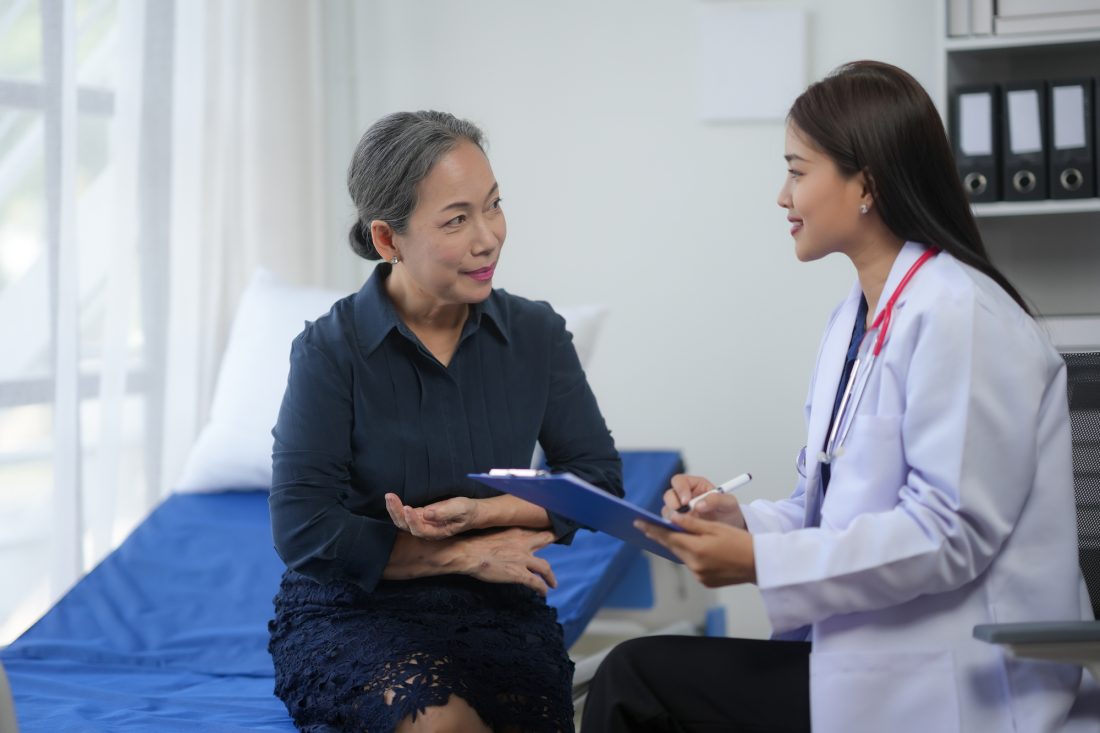
Menopause may be a natural life stage, but no woman should have to face its challenges alone. Understanding vasomotor symptoms and their impact is the first step toward seeking the right help. With more awareness, open conversations, and new treatment options like VEOZA™, women in Singapore now have better choices to manage their symptoms safely and effectively. If you’re experiencing hot flushes, night sweats, or other menopause-related concerns, don’t hesitate to reach out to your healthcare provider and explore solutions that work best for you.
At The Wellness Insider, we believe that empowering women with knowledge leads to better health and happier lives. You’re not alone—and support is available.
Images: Astellas Pharma, Envato and knowvms.pro
